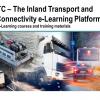News
Displaying Results 201 - 215 of 215
SPECA countries are facing unique challenges, stemming from at least three crises: the need to deal with the regional and global repercussions of the COVID-19 pandemic, the political upheaval in Afghanistan, and the conflict in Ukraine. With the correct policies and mechanisms for subregional…
All too often we take the air we breathe and share for granted. Only when we breathe very polluted air, when we can smell and see the pollution, do we realize that the air around us is a precious good that needs to be protected, much like the water we drink. On the International Day of Clean Air…
Circular economy transformation is a new area of cooperation between the United Nations Economic Commission for Europe (UNECE) and the Government of Tajikistan. Under the overarching leadership of the Ministry of Economic Development and Trade, UNECE together with the UN Tajikistan, and in…
Are you interested in learning how to promote policies to strive towards sustainable transport and better trade connectivity? Do you want to learn about the UN inland transport and trade facilitation legal instruments and standards? Do you want to increase your capacity, knowledge base and skills…
World trade continues to be severely affected by global supply chain disruptions, exacerbated by shocks including the ongoing Covid-19 pandemic and the war in Ukraine. These challenges attest to the value of supporting and reinforcing trade facilitation measures to enhance resilience in all regions…
New good practice guidelines for statistical offices have been published by UNECE’s body of experts dedicated to modernizing official statistics. The role of brand management, marketing and crisis communications for Statistical Organisations examines the importance of reputation for producers of…
The United Nations Framework Classification for Resources (UNFC) is now published in Greek and Portuguese. These translations will support policymakers to implement enhanced sustainable resource management in the UNECE region.
A universally acceptable and internationally applicable scheme for the…
As the sun sets in northern México, less than 100 kilometres from its border with the United States, news from the latest coal mining disaster near Sabinas, in the state of Coahuila, is heartbreaking for the families awaiting at the surface. Military divers who have bravely attempted to make their…
The Handbook on Forms of Employment, published today by UNECE, will help statisticians to assess the impacts of ever-increasing diversity in where, when, how and with whom we work.
The days of ‘working nine to five’ are, for many people, gone. In fact, the idea of having a stable, permanent, full-…
In 2022, international cooperation in energy and critical raw materials is high on the agenda. Optimal use of critical raw materials, for which demand is set to continue rising, will be crucial in delivering the green transition in energy, mobility and the digital world.
This will be in the…
In the past few years, multiple shocks ranging from pandemics to conflicts have restricted the movement of goods and services, resulting in the number of countries facing significant disruptions in supply chains is increasing every year, affecting timely delivery of essential goods, such as food…
The Covid-19 pandemic continues to hit hard the countries of the United Nations Special Programme for the Economies of Central Asia (SPECA) and highlights the need to diversify from current, resource-dependent models of economic development. This will mean putting ‘innovation and technology that…
Risk is a part of our everyday lives. When we wear a helmet to ride a bike, for example, we accept a small inconvenience to reduce the risk of a fall or an accident. When a homeowner decides to retrofit their house, they incur a cost to shield against an earthquake or a flood. Faced with the COVID…
Every year we lose about 14% of the food produced before it is sold, and this does not even include the food never harvested. Even more is wasted at retail and consumer levels. At the same time, over 800 million people worldwide suffer from hunger, while food loss is a major contributor to CO2…
The world is urbanizing fast. Already today, half the population is living in cities. By 2050, that proportion is projected to rise to over two thirds. Cities are economic powerhouses, accounting for 80 percent of world GDP. They also have large ecological footprints, accounting for 60-80 percent…













